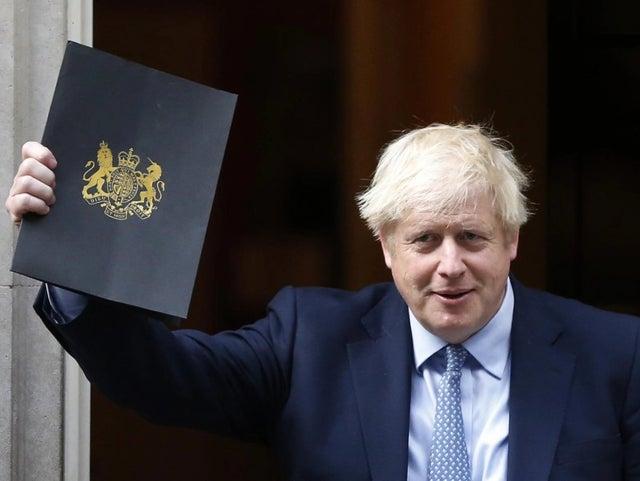It is perhaps a sign of how dire the prospects are for Britain’s post-Brexit trade deals that the hoary old idea of the nation taking its place in a so-called Canzuk union is once again being dusted down and run up the flagpole.
Since the EU referendum, the prospect of a new global superpower alliance - composed of Britain, Canada, Australia, and New Zealand - has been talked up by a small but committed band of supporters.
An absence of wider support has not deterred them from indulging in Churchillian fantasies of an English-speaking powerhouse, offering proof that the sun never sets on nostalgia for the days of empire.
The latest, writing in the Wall Street Journal, is the conservative historian, Andrew Roberts. He insists that the four nations coming together would forge the world’s fourth largest economy, with a combined GDP of more than £4.6tn, and prevent the US from being forced to act as the world’s policeman.

“A second Anglospheric superpower would mean that the political values we share will be better defended and promoted, and a flourishing Canzuk would be a fine neighbour and trading and defence partner for the US,” he explained.
It might be mistaken for a rational argument, at least were you to choose to ignore the inconvenient truth that geography alone would scupper such grandiose delusions.
Still these fanciful ideas persist, in no small part thanks to their endorsement from prominent think tanks such as the Adam Smith Institute and the Henry Jackson Foundation. They no doubt have their own reasons for endorsing such concepts, but we are forced to guess at their motivations. Such is the Americanisation of British politics.
This very subject - and a great many others - is tackled with aplomb by the investigative journalist, Peter Geoghegan, in his new book, ‘Democracy for Sale’. Its lucid and compelling narrative explores the likes of disinformation, propagandist, and the way in which technology’s rapid evolution renders legislative and regulatory frameworks redundant.
READ MORE
- The Roadmap To CANZUK: What’s To Come?
- CANZUK Shows Us What International Security Policy Should Look Like
- China cuts off contact with Australia under Strategic Economic Dialogue
- CANZUK’s total military expenditure
At the heart of it all, of course, is money, and Geoghegan offers a perceptive analysis of how the US and British systems differ, and how they compare.
The starkest contrast is without doubt the scale of the finances which pour into the coffers of political parties and campaigns either side of the Atlantic. In the US, the campaign donations system has long allowed big money and private interests to wield power and influence, and in recent years, the amount of money involved has spiralled to absurd levels.
Last month alone, the joint fundraising committees of the Trump campaign and the Republican National Committee raised more than £126m. In the past two years, meanwhile, the incumbent US president’s reelection campaign war chest has amassed around £840m.
These are extraordinary sums. By way of contrast, the cumulative total of donations mustered by every political party in the UK during the 2019 General Election campaign reached £30.7m, with the Tories accounting for just under two thirds of the total.
It is tempting to be lulled into a false sense of security by the fact the British system relies on mere pocket change compared to the billions of dollars being pumped into US politics. However, that does not mean it is not susceptible from being bought. Quite the reverse is true, in fact. WIth the bar set so low, our parliamentary democracy is particularly vulnerable to being gamed.
As Geoghegan points out, it is possible to obtain extraordinary access to key government decision makers for relatively small amounts of money, with a donation in the region of fifty grand the price for a seat at a Conservative Leader’s Group dinner.
Not that the money has to take the explicit form of a donation, although hard cash comes with the added bauble of a near guaranteed peerage. There are other ways to buy influence and play a prominent role in the nation’s political life, all of which come without the inconvenience of having to occupy public office.
One such avenue which has proven inordinately successful is to establish a libertarian think tank and bankroll what is essentially a paid-for lobbying operation disguised as a research institution thanks to the veneer of academic credibility.
What is more, the reliance of political parties on a handful of well-backed donors allows for vested interests to shape policy, no matter how obscure or niche they might appear in the eyes of ordinary voters.
This is especially true of the Conservatives, who have seen pro-European business donors turn their backs on the party. In their place, a small band of pro Brexit donors - many of them business figures involved in hedge funds - are ensuring their voices are being heard.
So it would appear with those talking up the merits of a Canzuk union and the decades old concept of the Anglosphere, a conduit for hardline Brexiteers to indulge in their imperial fantasies.



